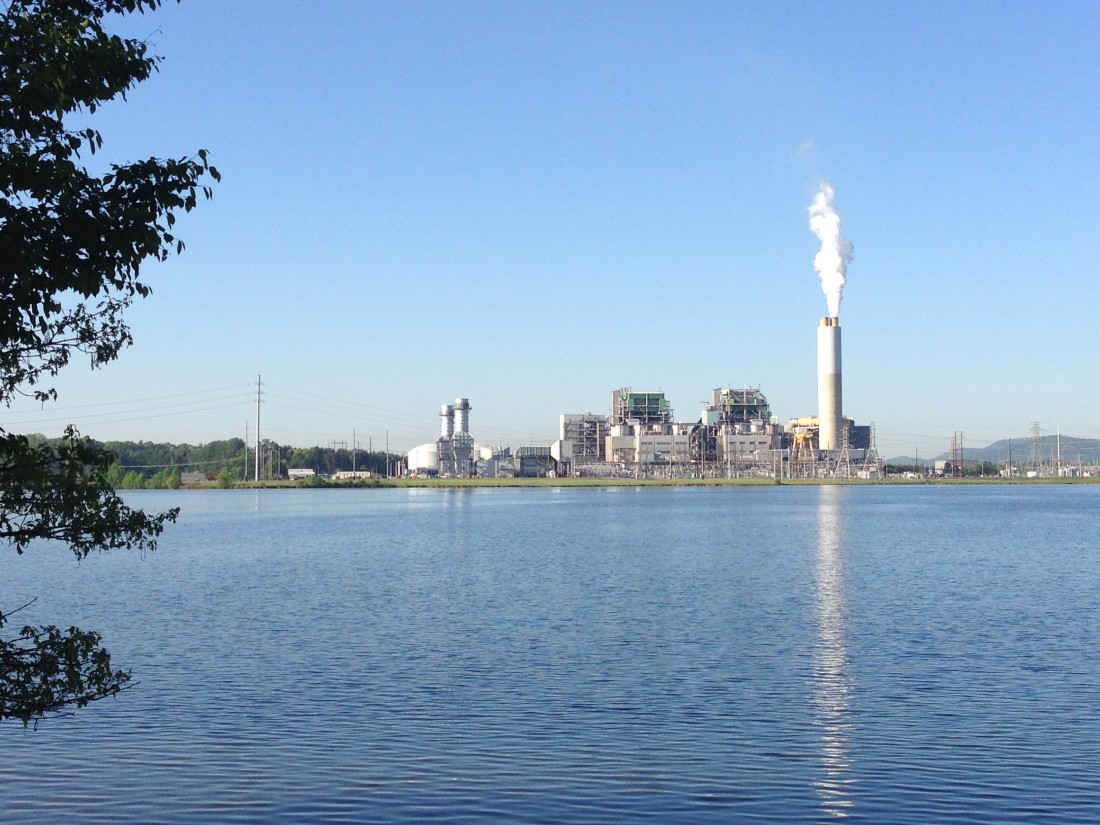Contaminated water is leaving the coal ash ponds at the Duke Energy plant in South Asheville, but the company says it is not a threat the environment or the community.
Duke Energy announced earlier this year that it would be retiring the coal-burning part of their Lake Julian power plant within the next half-decade in favor of natural gas augmented with a solar farm. In the meantime, at least one test from the North Carolina Department of Environment and Natural Resources showed potential problems with groundwater contamination making well water close to the coal ash ponds unsafe to cook with or drink. Further testing was deemed necessary by DENR to draw an accurate conclusion. Duke Energy has insisted that the tests, done by state agencies, showing unsafe pH levels and suspended solids and sulfates, do not show the source of the contamination.
A recent batch of groundwater assessments performed by Duke Energy at nine locations so far, including Asheville most recently, show that the contaminated water flows away from the nearby drinking wells in all cases except their already retired Sutton facility, the company says. The tests are required by the Coal Ash Management Act passed last year by the N.C. General Assembly after the Dan River spill.
In the case of the south Asheville plant, while the Duke-performed tests show groundwater contamination from the coal ash moving away from nearby wells, the same study shows that the groundwater is moving toward the French Broad River. However Erin Culbert, a Duke spokesperson, says that because “groundwater is flowing at a rate of feet per year, while a river is flowing at feet per second, there is a much higher volume of water flowing in the surface waters, so there is no dramatic impact from groundwater.” For more on the Duke Energy tests, as well as the Southern Environmental Law Center’s initial response, see the story from Charlotte Business Journal.



Before you comment
The comments section is here to provide a platform for civil dialogue on the issues we face together as a local community. Xpress is committed to offering this platform for all voices, but when the tone of the discussion gets nasty or strays off topic, we believe many people choose not to participate. Xpress editors are determined to moderate comments to ensure a constructive interchange is maintained. All comments judged not to be in keeping with the spirit of civil discourse will be removed and repeat violators will be banned. See here for our terms of service. Thank you for being part of this effort to promote respectful discussion.